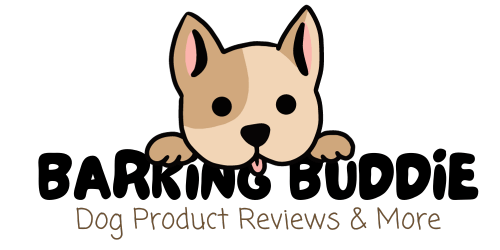If you’re a proud dog owner, then you know how important it is to prioritize your furry friend’s overall health and well-being. And while regular exercise and a balanced diet are essential, have you ever wondered about the importance of maintaining your dog’s dental hygiene? Just like humans, dogs can suffer from tooth decay, gum disease, and bad breath, which can lead to more serious health issues if left untreated. So, if you’re wondering how you can keep your beloved pup’s teeth clean and healthy, you’ve come to the right place! In this article, we’ll explore a few simple yet effective tips that will help ensure your dog’s pearly whites stay strong and sparkling. So, let’s get started on this journey to maintaining your dog’s dental health!

Brushing Your Dog’s Teeth
Choose the right toothbrush and toothpaste
When it comes to brushing your dog’s teeth, it’s important to choose the right toothbrush and toothpaste specifically designed for dogs. Using a toothbrush with soft bristles will be gentler on your dog’s gums and teeth. There are various toothbrush options available, including long-handled brushes and finger brushes, so you can choose the one that is most comfortable for you and your furry friend. Additionally, make sure to use toothpaste that is formulated for dogs, as human toothpaste can be harmful to them if ingested.
Start slow and be patient
Introducing your dog to toothbrushing may take some time and patience. Start by gently massaging your dog’s gums with your finger to get them used to the sensation. Then, gradually introduce the toothbrush by applying a small amount of dog toothpaste and gently brushing a few teeth. It’s important to be patient with your dog and make the experience positive by offering praise and rewards. Start with short brushing sessions and gradually increase the duration as your dog becomes more comfortable.
Develop a regular brushing routine
Consistency is key when it comes to brushing your dog’s teeth. Aim to brush their teeth at least two to three times a week, if not daily. By establishing a regular brushing routine, you will make it easier for your dog to adjust and become more cooperative during each session. Try to make teeth brushing a positive experience for your furry friend by offering treats or a favorite toy afterward. Incorporating teeth brushing into your dog’s daily routine will greatly contribute to their overall dental health.
Diet and Nutrition
Provide a balanced diet
A balanced diet plays a crucial role in maintaining your dog’s dental health. Make sure to provide a well-balanced diet that includes high-quality dog food and essential nutrients. Opt for dog food that is specifically formulated to promote dental health, as these options often have a texture that helps remove plaque and tartar. Additionally, make sure to feed your dog a diet that is appropriate for their age, size, and breed, as different dogs have varying nutritional needs.
Avoid sugary and starchy foods
Just like humans, dogs can suffer from dental issues as a result of consuming sugary and starchy foods. These types of foods can contribute to the formation of plaque and tartar, eventually leading to tooth decay and gum disease. To maintain your dog’s dental health, it’s important to avoid feeding them sugary treats, human food, and foods that are high in carbohydrates. Instead, opt for dental chews or treats that are specifically designed to promote oral hygiene.
Consider dental chews and treats
Dental chews and treats can be a great addition to your dog’s oral care routine. Not only do they provide mental stimulation and a tasty snack, but they also help remove plaque and tartar buildup. Dental chews have a textured surface that can aid in cleaning your dog’s teeth while they chew. Look for dental chews and treats that are recommended by veterinarians and specifically designed for dental health. However, it’s important to remember that dental chews should not replace regular brushing and professional dental cleanings.

Professional Dental Cleanings
Schedule regular veterinary check-ups
Regular veterinary check-ups are essential for monitoring your dog’s overall health, including their dental health. During these check-ups, your veterinarian can examine your dog’s teeth and gums and identify any potential issues. They can also offer guidance on maintaining good oral hygiene at home. It’s recommended to schedule a check-up at least once a year, but for older dogs or those with existing dental issues, more frequent visits may be necessary.
Ask about professional dental cleanings
While regular brushing and dental care at home are important, professional dental cleanings performed by a veterinarian are also crucial for your dog’s dental health. These cleanings involve the removal of plaque, tartar, and other debris from your dog’s teeth and under the gumline. It is a more thorough cleaning that cannot be achieved through brushing alone. Talk to your veterinarian about when to consider professional dental cleanings for your dog and how often they recommend them based on your dog’s specific needs.
Consider anesthesia for deep cleanings
In some cases, deep dental cleanings may require your dog to be put under anesthesia. Anesthesia ensures that your dog remains still and comfortable during the procedure, allowing the veterinarian to thoroughly clean their teeth and perform any necessary extractions or treatments. While there are always risks associated with anesthesia, your veterinarian will assess your dog’s health and determine the best course of action. Anesthesia allows for a more comprehensive cleaning and is often necessary for dogs with severe dental issues.
Oral Hygiene Products
Explore alternative oral hygiene products
In addition to regular toothbrushing, there are alternative oral hygiene products that can aid in maintaining your dog’s dental health. These products include dental wipes, pads, and water additives, among others. Dental wipes or pads can be useful for dogs who are resistant to toothbrushing or for reaching areas that are harder to brush. Simply wrap the wipe or pad around your finger and gently rub along your dog’s teeth and gums. Water additives can be added to your dog’s drinking water to help reduce plaque and freshen their breath.
Use dental wipes or pads
Dental wipes or pads can be a convenient and effective alternative to traditional toothbrushing. They allow for easy cleaning of your dog’s teeth and gums without the need for a toothbrush. Simply wrap the wipe or pad around your finger and gently rub along your dog’s teeth and gums. This can be especially beneficial for dogs who may be resistant to toothbrushing or for reaching areas that are harder to brush. Dental wipes or pads are readily available at pet stores and online.
Consider water additives for dental care
Water additives can be a simple and convenient way to promote your dog’s dental health. These additives are designed to be mixed with your dog’s drinking water and can help reduce plaque and freshen their breath. It’s important to choose water additives that are specifically formulated for dogs and follow the recommended dosage. While water additives can help complement regular toothbrushing and dental cleanings, they should not be used as a substitute for proper oral hygiene care.

Home Dental Care Techniques
Try tooth wipes or pads
If traditional toothbrushing is not suitable for your dog, tooth wipes or pads can be a great alternative. These products are designed to gently remove plaque and debris from your dog’s teeth and gums. Simply wrap the wipe or pad around your finger and gently rub along your dog’s teeth and gums. This method can be particularly useful for dogs who may have sensitive gums or those who are resistant to toothbrushing. Regular use of tooth wipes or pads can help maintain your dog’s dental health between professional cleanings.
Examine your dog’s mouth regularly
Regularly examining your dog’s mouth can help you identify any potential dental issues early on. Take some time to look inside your dog’s mouth and check for signs of plaque, tartar buildup, redness, swelling, or any other abnormalities. If you notice anything concerning, it’s important to consult with your veterinarian for further evaluation and guidance. Early detection of dental problems can help prevent more serious complications and ensure prompt treatment.
Consider natural or homemade dental care solutions
If you prefer a more natural approach to your dog’s dental care, there are several natural or homemade solutions you can consider. Some pet owners opt for natural toothpaste made from ingredients like coconut oil or baking soda. These alternatives can be effective in removing plaque and freshening your dog’s breath. However, it’s crucial to consult with a holistic veterinarian before trying any homemade dental care solutions to ensure they are safe and appropriate for your dog.
Chew Toys and Dental Treats
Choose appropriate chew toys
Chew toys are not only great for keeping your dog entertained but can also contribute to their dental health. When selecting chew toys, look for options that are designed to promote dental hygiene. These toys are typically made with textured surfaces that help remove plaque and tartar as your dog chews on them. Avoid toys that are too hard or small, as they may risk damaging your dog’s teeth. Opt for chew toys that are the appropriate size and durability for your dog’s breed and chewing habits.
Look for dental treats and bones
Dental treats and bones can be a tasty and beneficial addition to your dog’s oral care routine. Look for treats that are specifically designed to promote dental health by reducing plaque and tartar buildup. Dental treats are often formulated with ingredients that help remove debris and freshen breath. However, it’s important to choose treats that are appropriate for your dog’s size and dietary needs. Consult with your veterinarian to ensure that the dental treats and bones you choose are safe and beneficial for your furry friend.
Monitor your dog while chewing
When giving your dog chew toys or dental treats, it’s important to supervise them during the chewing process. Accidents can happen, and some dogs may try to swallow large pieces or break off small parts of the toy. Monitoring your dog’s chewing habits ensures their safety and helps prevent any dental emergencies. Additionally, regularly inspect the chew toys or treats for signs of wear and tear, and replace them as needed to maintain their effectiveness in promoting dental health.
Natural Remedies
Explore natural remedies for dental care
If you prefer a more natural approach to your dog’s dental care, there are several natural remedies you can explore. Some herbs, such as parsley, mint, and oregano, have natural antibacterial properties and can help freshen your dog’s breath. Additionally, certain supplements like fish oil or probiotics may support your dog’s overall dental health. However, it’s crucial to consult with a holistic veterinarian before introducing any new natural remedies or supplements to ensure they are safe and suitable for your dog.
Consider herbal solutions and supplements
Herbal solutions and supplements can be a natural way to promote your dog’s dental health. Some herbal solutions, such as herbal toothpaste or herbal mouth rinses, can help reduce plaque and freshen your dog’s breath. Additionally, supplements like cranberry or grape seed extract may have anti-inflammatory and antioxidant properties that support oral health. It’s important to note that herbal solutions and supplements should not replace regular dental care practices, but rather serve as complementary measures. Consult with a holistic veterinarian to determine the most appropriate options for your dog.
Consult with a holistic veterinarian
If you are interested in pursuing natural remedies or a holistic approach to your dog’s dental care, it’s highly recommended to consult with a holistic veterinarian. These professionals have specialized knowledge and experience in natural treatments and can provide guidance tailored to your dog’s specific needs. A holistic veterinarian can help you navigate the options available and ensure that any natural remedies or supplements you choose are safe and effective for your furry friend.
Regular Dental Exams
Schedule regular dental check-ups
Just as humans need regular dental check-ups, so do our furry companions. Schedule regular dental check-ups with your veterinarian to assess your dog’s dental health. During these examinations, your veterinarian will thoroughly inspect your dog’s teeth, gums, and overall oral cavity. They will look for signs of plaque, tartar buildup, gum disease, or any other dental issues. Regular dental check-ups allow for early detection and intervention, preventing more serious dental problems in the future.
Ask the veterinarian to assess dental health
During your dog’s regular veterinary check-ups, make sure to ask the veterinarian to assess their dental health. They can identify any potential dental issues, recommend appropriate home care techniques, and address any concerns you may have. Your veterinarian may also provide professional cleaning services or referral to a canine dental specialist if necessary. By actively involving your veterinarian in your dog’s dental care, you ensure comprehensive and well-rounded oral health for your furry friend.
Address any dental issues promptly
If your veterinarian identifies any dental issues during the examination, it’s important to address them promptly. Dental problems can worsen quickly and lead to more severe complications if left untreated. Depending on the severity of the issue, treatment may range from recommending a change in home care techniques to performing dental extractions or other necessary procedures. Timely intervention and treatment can help alleviate discomfort and prevent further damage to your dog’s teeth and gums.
Signs of Dental Problems
Recognize common signs of dental problems
As a responsible dog owner, it’s crucial to stay vigilant and recognize common signs of dental problems in your furry friend. Some common signs include bad breath, bleeding gums, excessive drooling, difficulty eating or chewing, pawing at the mouth, and yellow or brown discoloration on the teeth. If you notice any of these signs, it’s important to consult with your veterinarian as soon as possible. Early intervention can prevent the progression of dental issues and ensure your dog’s comfort and well-being.
Look for plaque and tartar buildup
Plaque and tartar buildup are common indicators of poor dental health in dogs. Plaque is a sticky film that forms on the teeth, primarily composed of bacteria and food particles. Over time, if not removed, plaque can harden and turn into tartar. Tartar is a hard, yellowish substance that can contribute to gum disease and tooth decay. Regularly check your dog’s teeth for the presence of plaque or tartar, as they require intervention through proper oral hygiene care or professional dental cleanings.
Watch out for bad breath and excessive drooling
Persistent bad breath (halitosis) and excessive drooling can be signs of underlying dental problems in dogs. Bad breath is often caused by the buildup of bacteria in the mouth, which can result from poor dental hygiene or other dental issues. Excessive drooling can also indicate dental problems or discomfort. If your dog’s breath becomes consistently unpleasant or if you notice a sudden increase in drooling, it’s important to have their dental health evaluated by a veterinarian.
Getting Professional Help
Consult a veterinarian for advice
When it comes to your dog’s dental health, it’s always best to consult with a veterinarian for personalized advice. They can provide guidance tailored to your dog’s specific needs and offer recommendations on the most suitable dental care practices. Your veterinarian will be knowledgeable about the latest advances in dental care and can help you make informed decisions regarding your dog’s oral health. Regular consultations with a veterinarian will ensure that you are on the right track in maintaining your dog’s dental hygiene.
Seek professional dental cleaning when necessary
While regular toothbrushing and home care techniques are essential, there are times when professional dental cleaning is necessary. Your veterinarian will assess your dog’s dental health and recommend professional cleanings when needed. These cleanings involve the removal of plaque, tartar, and other debris that cannot be effectively addressed through regular brushing alone. Professional cleanings, performed under anesthesia if required, can help prevent advanced dental disease and maintain your dog’s overall oral health.
Consider dog dental specialists for complex issues
For complex dental issues or if your veterinarian recommends specialized care, consider seeking the expertise of a dog dental specialist or veterinary dental specialist. These professionals have advanced training and experience in diagnosing and treating complex dental and oral conditions. They have specialized equipment and expertise to perform more complicated procedures, such as root canals or oral surgeries. Working in collaboration with your veterinarian, a dental specialist can provide the best care and treatment options for your dog’s specific dental needs.
By following these comprehensive guidelines for maintaining your dog’s dental health, you can ensure that they have a clean and healthy mouth. Remember, prevention and regular care are key to avoiding dental problems and maximizing your furry friend’s quality of life. With your love, patience, and diligence, your dog can enjoy a lifetime of fresh breath, healthy teeth, and a happy smile.


